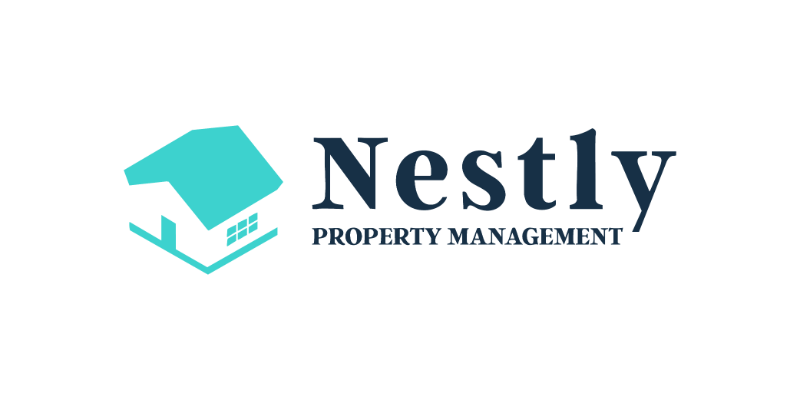How to earn more from your Airbnb in Cape Town
undefined • August 29, 2025
If you're a property owner in Cape Town, turning your home into an Airbnb can be a smart way to generate passive income. With stunning suburbs like Camps Bay, Clifton, and Sea Point drawing tourists year-round, the short-term rental market here is booming. But many hosts struggle with low bookings, tricky guests, and the endless admin that comes with self-management.
The good news? With the right strategies, you can boost your earnings significantly. In this post, we'll explore common challenges and practical solutions to help you maximise your Airbnb income—whether you're a busy professional, expat, or part-time investor.
The Cape Town Airbnb Market at a Glance
Cape Town's short-term rental scene is one of the strongest in Africa, with high demand from international visitors and locals alike. Recent data shows average annual revenues ranging from R205 000 to R420 000 per property, depending on location and management.
Occupancy rates typically hover between 47% and 71%, with an average daily rate (ADR) of around R1800 to R3600. These figures can vary by season - peaking in summer - but smart optimisation can keep your calendar fuller even during quieter months
These numbers highlight the potential, but they also underscore the need for effective management to avoid common pitfalls.
Common Challenges for Airbnb Hosts in Cape Town
Running an Airbnb isn't always smooth sailing. Many hosts face hurdles that eat into profits and add stress. Here are some of the most frequent issues
Low Occupancy and Booking Drops: Sudden dips in views and reservations are common, often due to seasonal fluctuations or increased competition. Some hosts report dramatic declines despite strong ratings.
Guest Management Problems: Dealing with difficult guests, property damage, or security concerns can be draining. In Cape Town, reports of increased property crimes linked to short-term rentals add another layer of worry.
Time-Consuming Admin: From cleaning and check-ins to pricing adjustments and handling payouts, the day-to-day tasks pile up. Payout delays have been a recurring issue for some South African hosts.
Regulatory and Market Pressures: The rise of Airbnbs has led to concerns about housing shortages and higher long-term rents, prompting calls for stricter regulations. Plus, legal hurdles like zoning or insurance can complicate things.
These pain points are real, but they're not insurmountable. With targeted strategies, you can turn them into opportunities for higher returns.
Practical Tips to Maximise Your Airbnb Income
To earn more from your short-term rental, focus on optimisation and efficiency. Here's how:
Optimise Your Listing for Visibility: Use high-quality photos of your space's best features—like ocean views in Sea Point or garden vibes in Constantia. Craft compelling descriptions that highlight unique perks, and include keywords like "Cape Town Airbnb" or "short-term rental in Camps Bay" to improve search rankings.
Price Competitively and Strategically: Don't guess—use dynamic pricing tools to adjust rates based on demand, seasons, and events. Start aggressive with lower minimum stays to build reviews, then scale up. Aim for that sweet spot where your ADR hits R2900 or more without scaring off bookings.
Prioritise Guest Vetting and Security: Screen guests thoroughly to avoid issues. Set clear house rules (e.g., no parties) and consider smart locks or cameras for peace of mind. This reduces damage risks and keeps your reviews glowing.
Maintain Professional Standards: Treat your property like a boutique hotel. Invest in quality linens, reliable cleaning, and quick maintenance. Simple design tweaks, like optimising space without over-decorating, can boost appeal and ratings
Leverage Data and Tools: Track performance with dashboards to spot trends. If managing solo feels overwhelming, partner with a local service for hands-off operation.
By addressing these areas, you can push your occupancy toward the higher end (66%+) and see real income growth.
Why Consider Professional Airbnb Management in Cape Town?
If you're juggling a full-time job or multiple properties, self-managing can quickly become a hassle. That's where services like Nestly come in. As a hospitality-led property management company, Nestly handles the heavy lifting so you can enjoy the rewards.
We optimise listings with daily pricing updates and seasonal visibility tweaks to keep your calendar full. Our team vets every guest, enforces no-party policies, and cleans like it's a five-star hotel - complete with fresh linens and restocking. You'll get a real-time dashboard for transparent earnings tracking, all while we manage check-ins, maintenance, and more. Whether you choose our Lite (10% fee) or Turnkey (17% fee) plan, the goal is simple: more bookings, less work.
Hosts using professional management often see higher returns by avoiding missed opportunities and reducing stress. It's grounded, practical support tailored to Cape Town's market.
Ready to Boost Your Earnings?
Turning your Cape Town property into a high-performing Airbnb doesn't have to be complicated. By tackling pain points head-on and implementing smart strategies, you can unlock steady passive income. If you're ready to see what's possible, get a free revenue estimate from Nestly today. Visit our site or fill out the lead form - let's make your space work harder for you.
Share to social media
More posts

Hey there, fellow wanderlusters and property pros! If you're anything like us - running a bustling property management company right here in the heart of Cape Town - you know that Airbnb isn't just about crashing on a couch anymore. It's evolved into a wild playground of eccentricity, where guests chase experiences that make their Instagram feeds pop and their travel stories legendary. We're talking stays that blend Cape Town's iconic vibes (think Table Mountain sunsets and penguin parades) with offbeat twists that could only happen in the Mother City. Let's dive into the trends shaping the scene. 1. Themed Escapes: Hobbit Holes Meet Bo-Kaap Brightness Gone are the days of bland beige apartments. 2025 is all about immersive themes that transport guests to another world - without leaving Cape Town's shores. Picture this: hobbit-inspired burrows tucked into the fynbos-covered slopes of Signal Hill, complete with round doors, earthy interiors, and views that Frodo would envy. Or glamping wagons parked beachside in Camps Bay, where you can chill in a hot sauna while seals bark in the distance. Why the quirk? Travelers are craving "slow travel" and self-reflection, ditching cookie-cutter hotels for stays that spark joy and storytelling. In Cape Town, we're seeing a surge in listings that mash local heritage with fantasy flair - like colorful Bo-Kaap houses reimagined as psychedelic artist retreats, where walls double as canvases for guest doodles. One property even features a "penguin-proof" pool enclosure, inspired by nearby Boulders Beach, ensuring your dip doesn't turn into a wildlife documentary. These themed gems aren't just fun; they're booking magnets, with unique experiences driving up occupancy by catering to the personalisation craze. 2. Eco-Quirky Stays: Sustainable Shenanigans with a Cape Twist Sustainability is hot, but in 2025, it's getting a quirky upgrade. Guests want eco-friendly digs that don't skimp on the whimsy—think treehouses perched in ancient milkwood groves along the Garden Route outskirts, powered by solar panels and featuring composting toilets disguised as throne rooms. Or upcycled shipping container homes in Woodstock, decked out with vertical gardens that grow your breakfast herbs. Cape Town's natural playground amplifies this trend: we're spotting more "zero-waste wonderlands" with rainwater-harvesting systems that feed quirky features like outdoor showers under the stars. One standout? A villa in Constantia that includes a "braai bot"—an AI-assisted grill that suggests eco-recipes based on local, seasonal ingredients while minimising charcoal waste. It's part of the broader shift toward green amenities that resonate with remote workers and nature lovers, boosting bookings in emerging markets like our leafy suburbs. Pro tip: If you're hosting, add a "fynbos foraging kit" for guests to whip up their own quirky cocktails - it's a hit with the cultural immersion crowd. 3. Tech-Meets-Twist: High-Tech Hideaways for the Digital Nomad Weirdos With 58% of bookings now mobile-first, tech is infiltrating Airbnb in delightfully odd ways. In Cape Town, where digital nomads flock like seagulls to a braai, listings are sprouting smart quirks that feel straight out of a sci-fi rom-com. Imagine voice-activated murals in a Sea Point loft that change colours based on your mood, or AR tours of Table Mountain projected onto your bedroom ceiling for those too busy to hike. Properties are leaning into this with "nomad nooks" - dedicated workspaces equipped with holographic meeting pods and quirky add-ons like robot butlers that deliver rooibos tea on demand. But the real game-changer? Hybrid stays blending work and play, like a V&A Waterfront apartment with a built-in bowling alley setup. It's quirky, it's convenient, and it's perfect for the "soft travel" trend where folks seek reflection amid the chaos. As managers, we're optimising these with SEO tweaks - keywords like "pet-friendly workspace" or "family-friendly tech den" - to snag those top search spots. In 2025, the Airbnb game in Cape Town is about standing out with heart, humour, and a hefty dose of local flavor. Whether you're a guest hunting for that perfect quirky nook or a host looking to level up, these trends promise adventures that are anything but ordinary. If you're managing properties here and want to infuse some of this magic into your listings, drop us a line - we're experts at turning the everyday into the extraordinary. Disclaimer: All views are inspired by the vibrant Cape Town scene, and trends evolve faster than a chameleon on Adderley Street.
